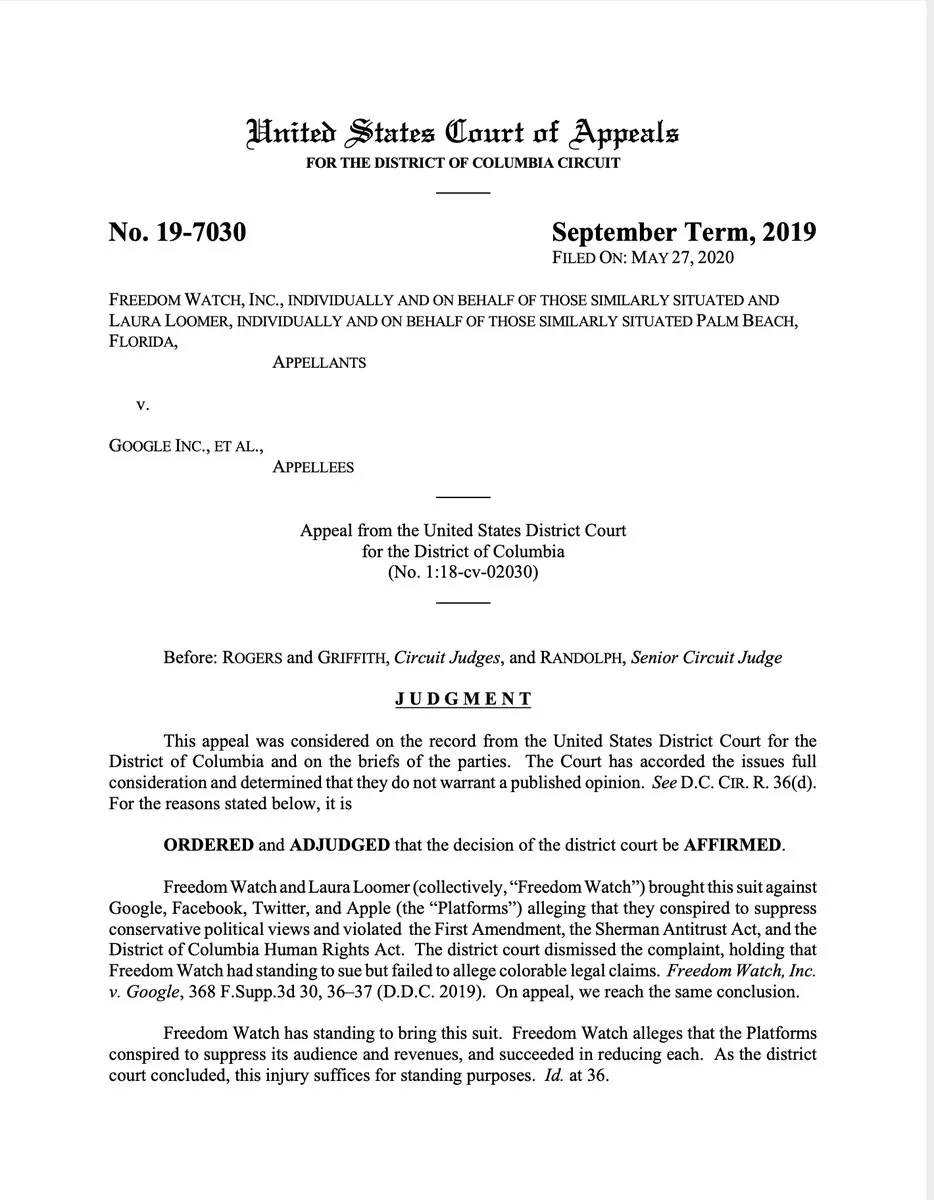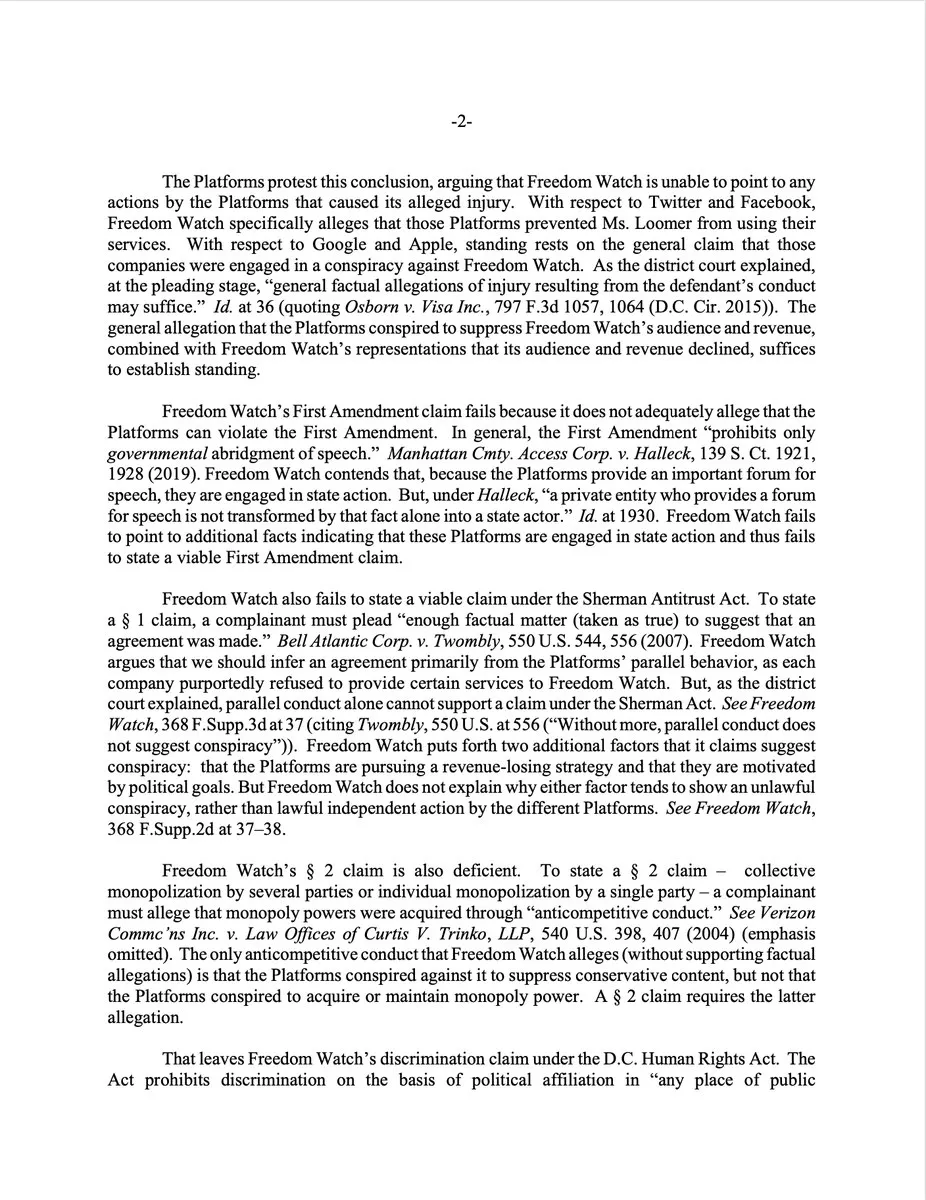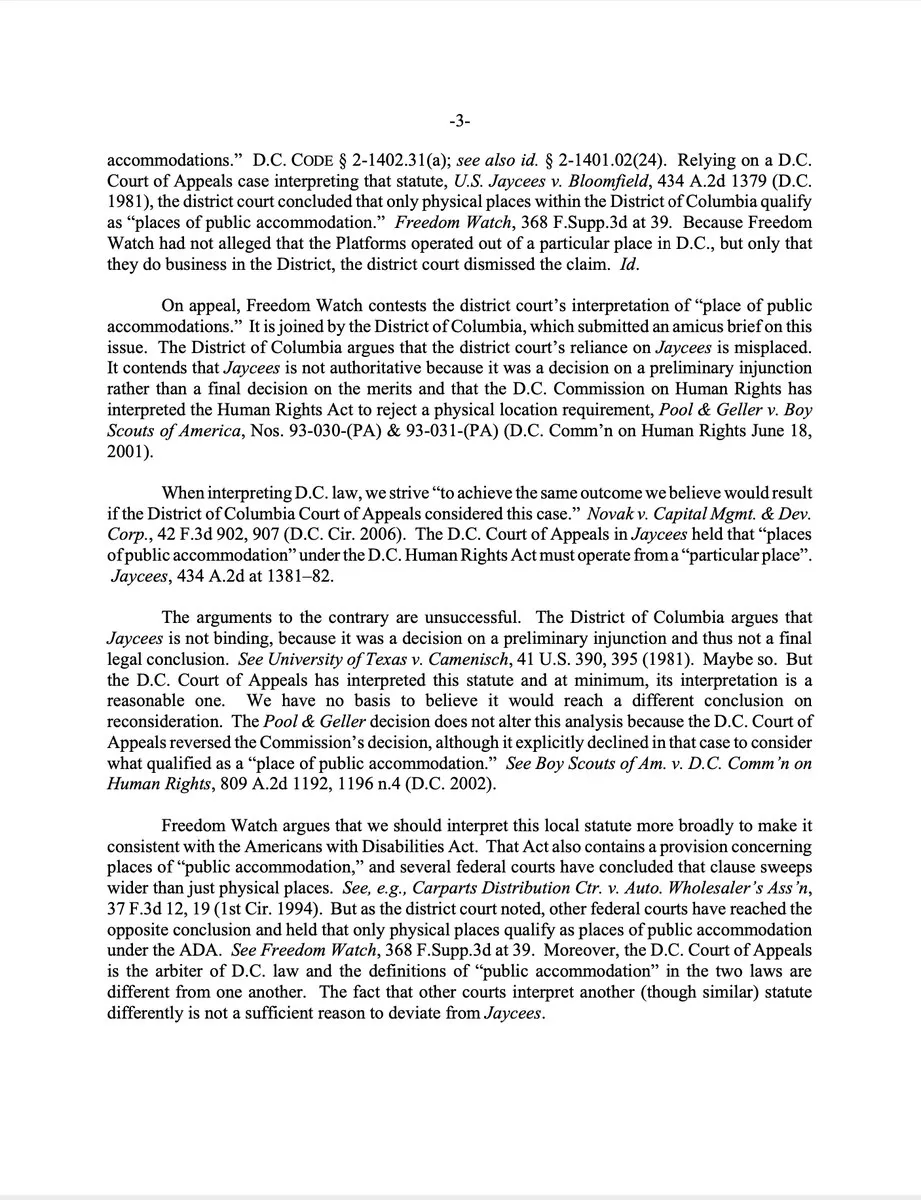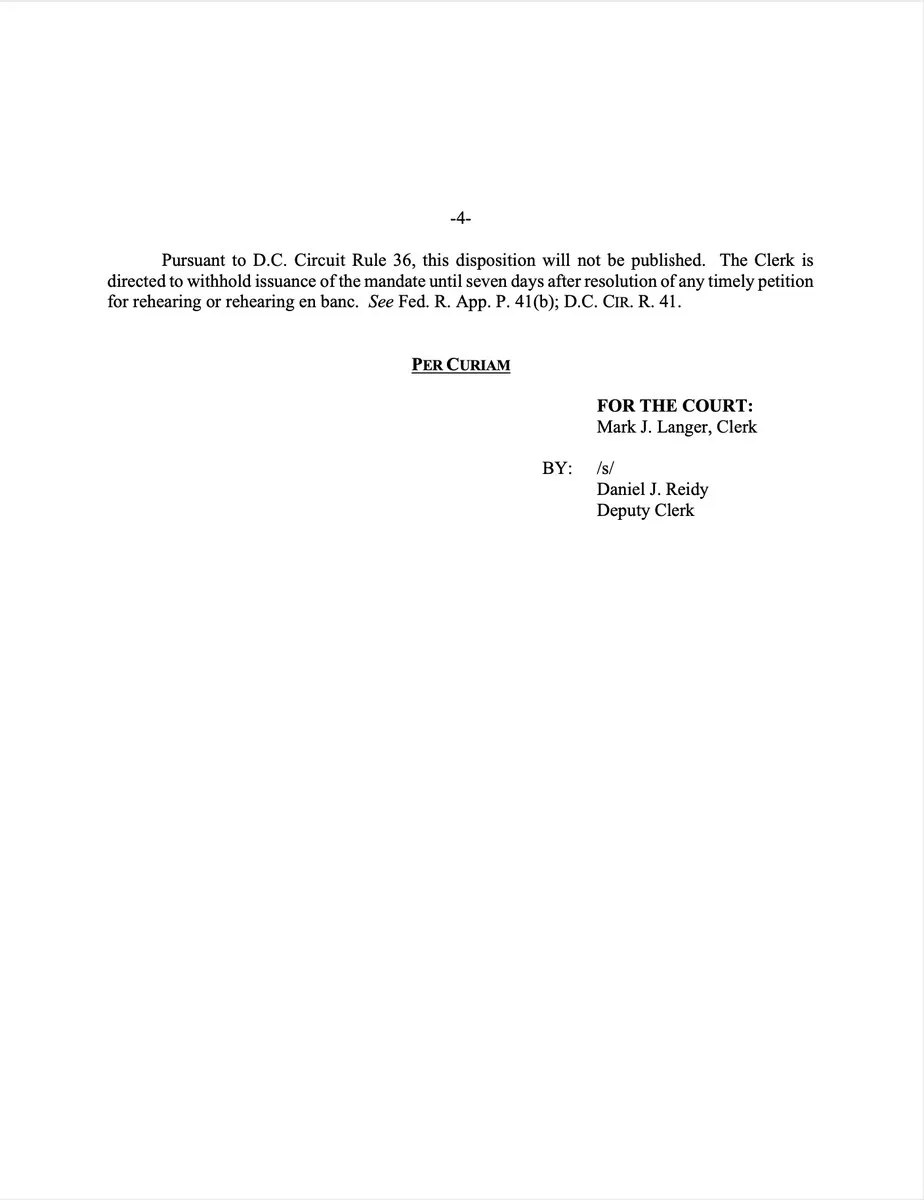Yesterday, Laura Loomer's high profile case against Facebook, Google, Twitter and Apple's censorship of conservative voices was thrown out by the US Court of Appeals (DC Circuit).
See https://www.bloomberg.com/news/articles/2020-05-27/twitter-facebook-win-appeal-over-alleged-anti-conservative-bias
AND
NEW: On the day @realDonaldTrump threatens @Twitter because they fact-checked one of his lie-filled tweets, the DC Circuit throws out Laura Loomer's lawsuit against the company for "suppressing conservative speech" by banning her from their platform. pic.twitter.com/snaYj9Zz1K
— Andrew Feinberg (@AndrewFeinberg) May 27, 2020
This is a frustrating result for conservatives but it arises because they backed a weak case when a much stronger case against the same Big Tech defendants (excluding Apple) for similar conduct is available and can achieve the same political goals and much more.
Crypto Class Action against Facebook, Google & Twitter
JPB Liberty's (@jpbliberty) Class Action against Facebook, Google & Twitter's (the "Platforms") censorship of the Crypto Industry (early 2018 Crypto Ad Ban) has strengths everywhere Loomer's case had weaknesses.
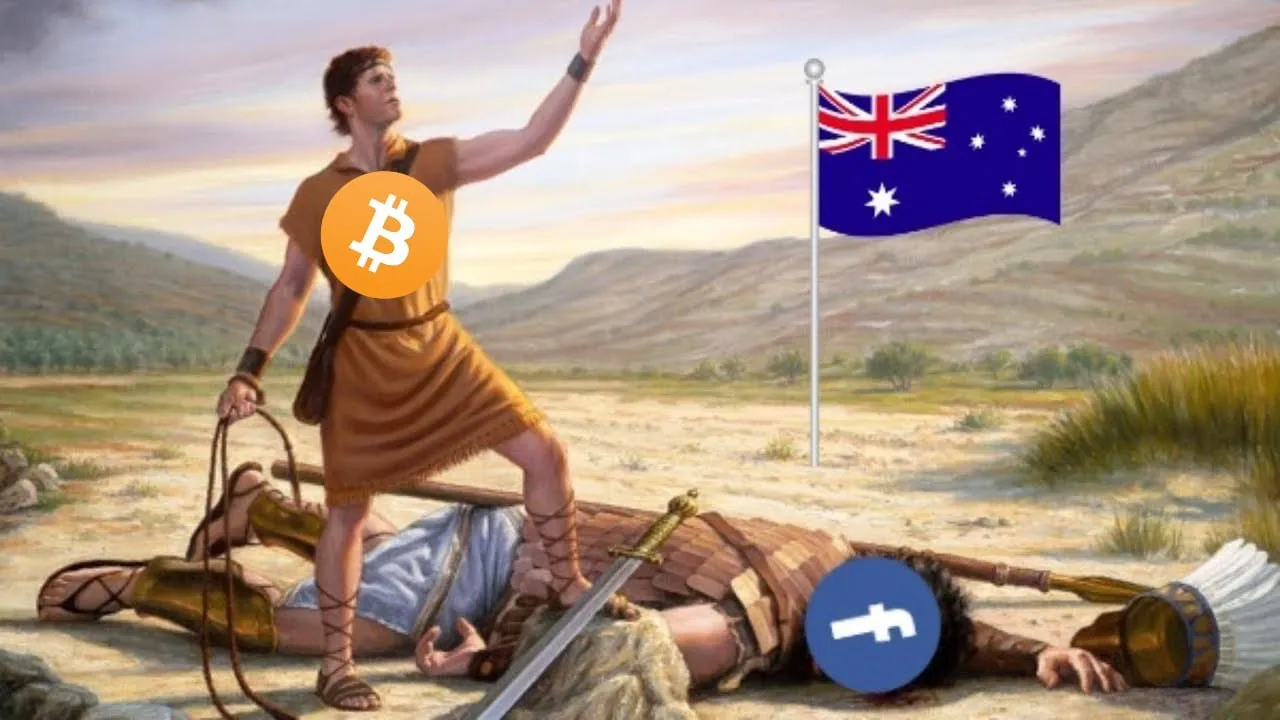
Showing an Agreement to Censor between the Platforms
Loomer failed under s 1 of the Sherman Antitrust Act because she failed to
"plead enough factual matter (taken as true) to suggest that an agreement was made." (page 2 para 2 of Loomer Judgement below).
In contrast JPB Liberty has rock solid evidence of agreements to censor between the Platforms.
Laura tried to rely on "parallel conduct" by Facebook & Twitter in banning her. This is always a weak argument, especially when only 2 of the 4 actually banned her.
In contrast, Facebook, Google and Twitter's ban on the Crypto Industry's advertising is there in black and white in the Platforms terms and conditions. These form contracts with all users of the Platforms, including each other. Thus there was clearly an agreement between each Platform and each other Platform to censor the Crypto Industry.
Showing Anti-competitive conduct
Laura failed under s 2 of the Sherman Antitrust Act because she failed to show that:
"monopoly powers were acquired through 'anticompetitive conduct'"
Laura alleged that the Platforms:
"conspired against [her] to suppress conservative content".
(Page 2 para 4 of Loomer Judgement).
The problem is that conservative voices are not competitive with the Platforms in any economic market - which is what the Sherman Act deals with.
In contrast, the Crypto Industry IS competitive with the Platforms in a multitude of ways.
Crypto players are competitive in internet advertising - the Platforms' main business;
the Platforms are competitive in cryptocurrency (see Facebook Libra and Jack Dorsey's Cash App and Square) - the Crypto Industry's main business;
Crypto platforms like Hive, Steem and LBRY are directly competitive with the Platforms in social media and in Application hosting.
Enough Damages to make a Difference
Another flaw in Loomer's case is that even if she won, the damages would be a drop in the bucket compared to the Platforms' huge cash piles.
How do you even assess damage from suppression of conservative voices?
Even if Laura had won $100M it would make no difference and the Platforms would just be more careful and stealthy in future censorship.
In contrast, the Crypto Ad Ban clearly caused over $350 Billion of damages in drops in the value of all cryptocurrencies, losses of crypto exchange revenue, difficulties acquiring new users etc.
Particularly badly hit, with 95%+ losses, were those Crypto platforms like Steem/Hive and LBRY that are directly competitive with the Platforms.
This is enough damage to obliterate Twitter, cook Facebook and seriously wound Google.
JPB Liberty's case can also establish a legal precedent that makes it very difficult for the Platforms to censor anyone in the future.
A favourable Jurisdiction
The US is well known as having weak anti-trust law.
The DOJ spent a decade going after Microsoft with nothing to show for it.
Hardly any major anti-trust litigation has been brought by the DOJ in the last 20 years. Private anti-trust actions in the US are almost unheard of.
Australia, by contrast, has strong anti-trust law which the Platforms breached by banning Crypto advertising in early 2018. There are no available defences because the Platforms failed to seek authorisation from the regulator (ACCC).
Private rights of action are well used and Class Actions are much easier to run than in the US.
The Platforms OWN the US - it is their home ground and they have immense political influence and know every trick.
This is not the case in Australia, where the Australian government and people are very unhappy with Facebook and Google. The Australian Federal Treasurer has made numerous statements against them.
In Australia they will face an unbiased court, clear law and no political string pulling.
If you want to stop Big Tech censorship support JPB Liberty's Crypto Class Action. See JPB Liberty's website and Hive blog.
Loomer Judgement
